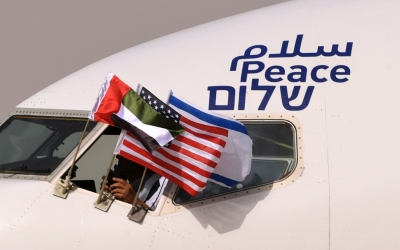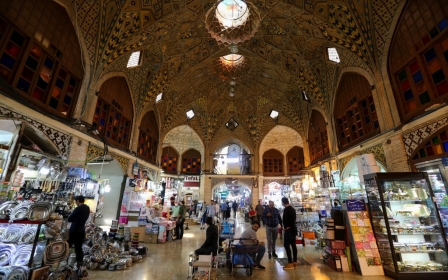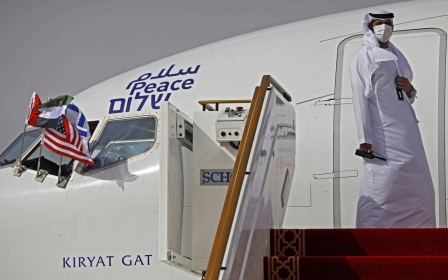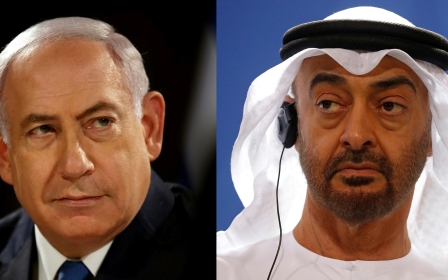Iran's Khamenei says UAE 'betrayed' Muslim world with Israel deal
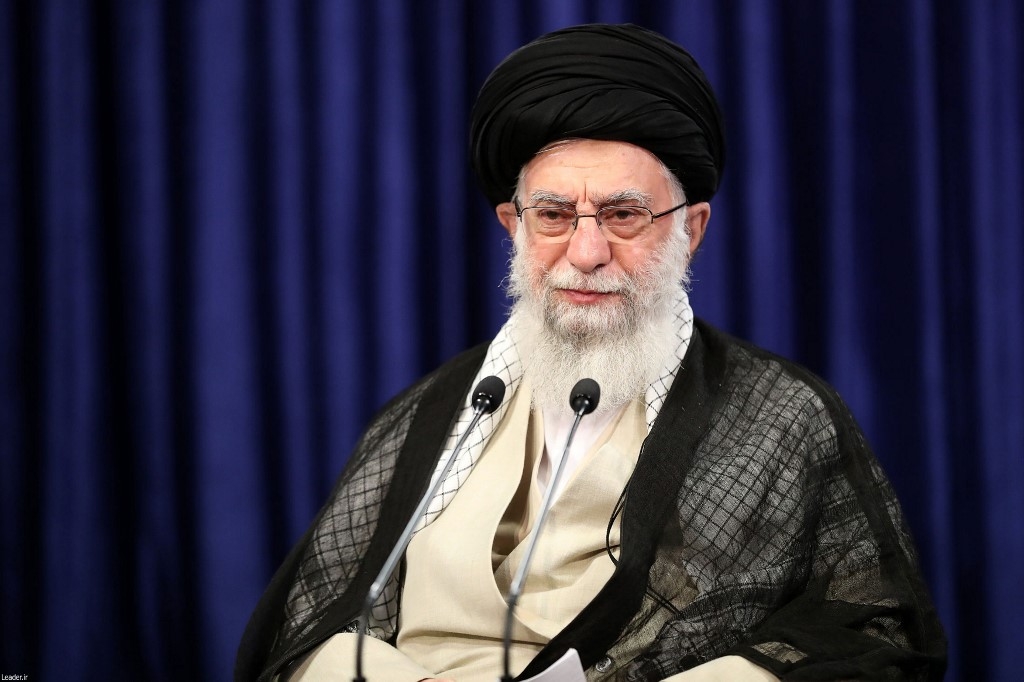
Iran's supreme leader accused the United Arab Emirates of betraying the Muslim world with its decision to normalise relations with Israel.
Ayatollah Ali Khamenei said in a televised speech on Tuesday that the deal, which Palestinians referred to as a "stab in the back", would disgrace the UAE "forever".
"Of course, the UAE's betrayal will not last long, but this stigma will always be remembered," he said.
"They allowed the Zionist regime to enter the region and forgot Palestine. The Emiratis will be disgraced forever... I hope they wake up and compensate for what they did."
Iranian authorities harshly criticised the US-brokered deal between the UAE and Tehran's longtime foe Israel, with some officials warning the UAE and Israel fostering closer ties risks igniting a firestorm in the region.
Immediately after the deal's announcement, Iranian President Hassan Rouhani said it was a "big mistake" and warned against allowing Israel a "foothold in the region".
Meanwhile, UAE foreign ministry official Jamal al-Musharakh dismissed Khamenei's comments, saying the "path to peace and prosperity is not through incitement and hate speech".
"That kind of rhetoric is counterproductive to peace in the region," Musharakh said.
Palestinians were dismayed by the UAE's move, worried it would weaken a long-standing pan-Arab position that only an Israeli withdrawal from occupied territories and acceptance of Palestinian statehood would allow for normal relations with the Arab countries.
While the Emirates has stated that the deal was predicated on Israel freezing its plan to annex large swathes of the occupied West Bank, Israeli Prime Minister Benjamin Netanyahu has repeatedly said that annexation is still on the table.
Increased cooperation
Israel and the UAE are expecting economic and enhanced security benefits from normalisation, the first such accommodation between an Arab country and Israel in more than 20 years, largely forged through their shared distrust of Iran.
On Saturday, the UAE announced it was scrapping its economic boycott of Israel, with officials from the two countries saying they are looking at cooperation in defence, medicine, agriculture, tourism and technology as part of the deal.
Two days after the deal was signed, the head of Israel's Mossad intelligence agency visited the UAE for security talks.
On Monday, the first direct flight by Israel's flagship carrier El Al landed in Abu Dhabi, carrying US and Israeli officials including President Donald Trump's son-in-law, Jared Kushner.
In recent years, the UAE has held quiet talks with Israel and allowed Israelis with second passports into the country for trade and talks.
The UAE's foreign minister recorded a message for the Palestinian diaspora living in the Emirates on Monday, the day of the first commercial flight between Israel and the Emirates.
Sheikh Abdullah bin Zayed al-Nahyan said the UAE was still committed to "establishing an independent Palestinian state with East Jerusalem as its capital".
"We will continue to support the Palestinian cause based on our historic stance that stems from a deeply rooted, unshakable belief that will never change as a result of any considerations," he said.
Middle East Eye delivers independent and unrivalled coverage and analysis of the Middle East, North Africa and beyond. To learn more about republishing this content and the associated fees, please fill out this form. More about MEE can be found here.


